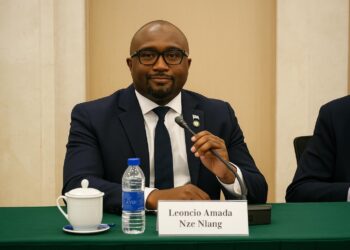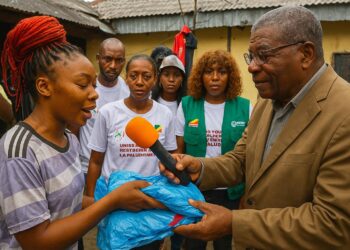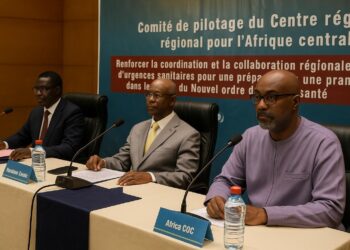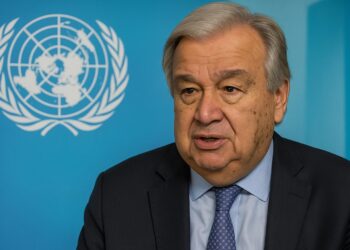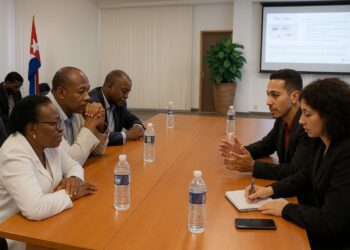Brazzaville Basketball Season Finale
The wooden floor of Gymnase Maxime Matsima in lively Makélékélé echoed until late afternoon on 27 July 2025, as two all-Brazzaville finals crowned the season. The double trophies of the national championship and the Congo Cup found familiar shelves this year.
According to the federation bulletin and reports by Les Dépêches de Brazzaville, Ange-Noirs Basket-Club topped the women’s bracket while BC Inter Club retained men’s supremacy, completing what local commentators dubbed a “golden sweep” for the 2024-2025 campaign.
Ange-Noirs BC Seize Women’s Glory
The women’s final, tipped off shortly after noon, displayed tactical caution for three quarters before exploding into a frenetic last stretch. Ange-Noirs edged Inter Club 52-45, finally prying open a seven-point gap that felt larger than the scoreboard suggested.
Playmaker Nzazi, only twenty-two yet already captain, poured in sixteen points, orchestrating possessions with an economy of dribble that drew applause from veteran observers such as former international Maxime Mbochi sitting courtside.
Ange-Noirs reached the showcase after dismantling AS Cheminots of Pointe-Noire 41-15 in a semifinal where defensive rotations suffocated any coastal threat, the statistics department noting only six rival field goals over forty minutes.
Inter Club’s women, despite the final loss, had earlier produced the tournament’s largest margin, a 107-04 quarter-final master-class that highlighted the depth of Brazzaville’s talent pipeline and justified technical investments by club patrons in recent seasons.
BC Inter Club Anchor Men’s Crown
The evening finale brought a different rhythm. Inter Club’s men, traditionally associated with the national defence forces, controlled AS Otohô 73-63 through disciplined perimeter switching and a patient half-court offense that mirrored coach Bienvenu Bokamba’s preference for calculated tempo.
AS Otohô’s Désiré Victoire Mouzita nonetheless electrified neutrals, dropping thirty-one points, many via feathery mid-range pull-ups that resisted Inter Club’s length. His post-game reflection, relayed by Télé Congo, underlined “respect for the soldiers’ organisation” and a promise to regroup next season.
Inter Club had secured its berth after a 60-52 semi-final over Black Lion, whereas Otohô advanced past Cheminots 83-63, reinforcing a Brazzaville-versus-hinterland narrative that animated football earlier in the year.
For coach Bokamba, quoted by Agence Congolaise d’Information, victory stemmed from “systems drilled since October, not individual brilliance”. Analysts noted the unit’s plus-ten differential in points off turnovers, a metric the staff monitors to align with continental benchmarks.
Veterans, Officials and Continuity
The federation president, Fabrice Makaya Matève, attended alongside former chairman Firmin Dinga and several icons of the 1980s squad that reached AfroBasket. Their visible camaraderie projected continuity in governance few regional sports bodies currently match.
In brief remarks, Matève underscored support from the Ministry of Sports and the Head of State for infrastructure upgrades that have multiplied competitive dates, insisting that “elite calendars thrive only upon stable institutions”, an assertion greeted with nods from diplomatic guests.
The presence of veterans such as Zéphyrin Kimbouri and Rock Blanchard Okemba offered a living archive of technique. During interludes they demonstrated classic footwork to youngsters, blending nostalgia with knowledge transfer in a gesture warmly captured by Radio Congo’s evening bulletin.
Infrastructure and Economic Ripples
Since 2019, Brazzaville’s government-backed urban plan has allocated new multi-sport halls in Ouenzé and Talangaï, easing scheduling pressure on Matsima and positioning the capital as a hub for regional qualifiers, observers at the African Union Sports Council note.
Economic actors also see spill-over. Hotels near Makélékélé reported occupancy spikes, and informal vendors sold tricolour wristbands long after the final buzzer, an illustration of sports tourism potential highlighted in a recent study by the Congolese Chamber of Commerce.
Regional Ambitions and Talent Flows
At continental level, Congo-Brazzaville has tabled a bid to host the 2027 Zone IV Women’s Championship. Sources within FIBA-Africa say the successful staging of domestic finals strengthens that file, especially regarding security protocols and broadcast readiness.
The clubs will now pivot toward the Inter-Cities Tournament scheduled in October. Coaches expect roster tweaks as students leave for universities abroad and veterans evaluate offers from Angolan or Rwandan leagues, a reminder of the fluid talent market in Central Africa.
Yet the evening’s lasting image remains that of two championship banners raised under one roof, signalling cohesion in Congolese basketball and, by extension, a cultural asset the diplomatic community increasingly references as a conduit for dialogue and national branding.
Gender Parity and Media Reach
The double-header also rekindled discussion on parity. FECOKET’s technical director, Aimée Koussou, confirmed new scholarship guidelines ensuring equal per-diem rates for male and female teams during away fixtures, an initiative welcomed by the UN Development Programme’s country office for its inclusive lens.
Domestic broadcaster DRTV reported peak audience shares of 62 percent, a figure cross-validated by consultancy MediaStats, suggesting basketball now rivals football in urban prime time. Online streams drew viewers from the diaspora in Paris and Montréal, expanding Congo’s soft-power footprint beyond traditional chancelleries.
Youth Engagement Metrics
Ministerial data indicate that licensed youth players have climbed from 3,200 in 2021 to 4,750 this season, coinciding with curriculum reforms that insert basketball modules into secondary physical-education classes. Researchers at Marien-Ngouabi University frame the trend as a public-health dividend.



































